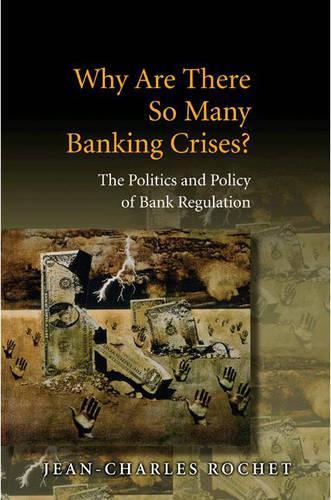
Why Are There So Many Banking Crises: The Politics and Policy of Bank Regulation
(Hardback)
Publishing Details
Why Are There So Many Banking Crises: The Politics and Policy of Bank Regulation
By (Author) Jean-Charles Rochet
Princeton University Press
Princeton University Press
1st April 2008
United States
Classifications
Professional and Scholarly
Non Fiction
Hospitality and service industries
Finance and the finance industry
Economic and financial crises and disasters
332.1
Physical Properties
Hardback
320
Width 152mm, Height 235mm
567g
Description
Almost every country in the world has sophisticated systems to prevent banking crises. Yet such crises--and the massive financial and social damage they can cause--remain common throughout the world. Does deposit insurance encourage depositors and bankers to take excessive risks Are banking regulations poorly designed Or are banking regulators incompetent Jean-Charles Rochet, one of the world's leading authorities on banking regulation, argues that the answer in each case is "no." In Why Are There So Many Banking Crises, he makes the case that, although many banking crises are precipitated by financial deregulation and globalization, political interference often causes--and almost always exacerbates--banking crises. If, for example, political authorities are allowed to pressure banking regulators into bailing out banks that should be allowed to fail, then regulation will lack credibility and market discipline won't work. Only by insuring the independence of banking regulators, Rochet says, can market forces work and banking crises be prevented and minimized.In this important collection of essays, Rochet examines the causes of banking crises around the world in recent decades, focusing on the lender of last resort; prudential regulation and the management of risk; and solvency regulations. His proposals for reforms that could limit the frequency and severity of banking crises should interest a wide range of academic economists and those working for central and private banks and financial services authorities.
Reviews
"Among economists' explanations are moral hazard, ill-judged capital adequacy rules and the incompetence of supervisors. Jean-Charles Rochet, a leading authority on banking, argues the real problem lies with politicians who too often insist on rescuing insolvent banks for short-term reasons of their own. [W]hatever the verdict on the policy proposals, the book makes interesting reading in current circumstances."--John Plender, Financial Times "The book provides an excellent introduction to the theory of banking regulation... I can recommend the book to anyone interested in a formal, academic approach to banking regulation. The concise conclusions of the individual articles provide valuable ideas for changes in banking regulation."--Bernd Brommundt, Financial Markets and Portfolio Management
Author Bio
Jean-Charles Rochet is professor of mathematics and economics at the University of Toulouse and a visiting professor at the London School of Economics and Political Science. His books include (with Xavier Freixas) "Microeconomics of Banking" and (with Guillaume Plantin) "When Insurers Go Bust" (Princeton).
